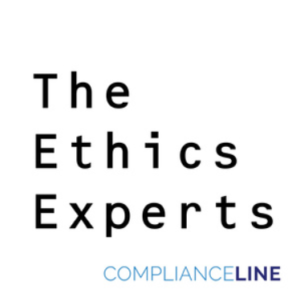Almost all of the world has condemned the Russian invasion of the Ukraine and I will add my small voice to that condemnation. In trying to choose what to write, I did not want to emphasize the better the geopolitical commentary, so I decided to focus on how this invasion and its attendant fallout might impact compliance professionals and programs. At this point Russia has limited its attacks to Ukraine but my fear as more EU, other Western allies and the US respond with arms and technical support to the Ukraine government and army, we might see Russia unleash its cyber warfare specialists on those who are supporting Ukraine with material and other support. This week I am going to write about some of the issues a Chief Compliance Officer (CCO) needs to think about now. Today, I consider Russia.
The list of sanctions is growing as the situation on the ground becomes more intense and dynamic, so you need to be in constant contact with your operations, sales and supply chain functions. At this point, you should probably add Belarus to that list as they appear to be the only other country actively supporting Russia at this point. Given the US, EU and UK sanctions that have been levied and likely will be sanctioned over the next few days and weeks, at this point your organization probably needs to prepare for a full ban on sales from your organization into Russia. Russia (and Belarus) appears to be headed to the same list as North Korea and Iran and your business needs to ready.
Know Your Customer
One of the first thing every CCO needs to do right now is determine what goods, products or services flow from, through or to Russia. This means knowing who your customers are and where they are located. If you have not stopped selling to any Russian companies now you probably need to stop tomorrow. But this inquiry does not stop or even start at the Russian border. It means any products which might go into Russia through any of your sales channels. Do you have distributors? What countries are they in? Same inquiry for resellers. Any entity that can get your company’s products into Russia needs to be determined now. Make preparations now to cease all business.
Time for your legal department to start looking at every force majeure clause in every contract. Because of where I live, I have looked at force majeure clauses almost every hurricane season and I cannot remember one that did not include a war clause. I rewrote many such clauses to make such pandemic and other health emergencies covered. But your corporate legal department needs to be ready to invoke them under the war clause.
Who is in Your Supply Chain?
The same level of inquiry you put into KYC right now should go into your Supply Chain. Obviously if you have suppliers in Russia, you need to be prepared to jettison that relationship. However even if you do not formally or legally terminate those relationships, your organization needs to be ready for serious disruptions for any components you may be depending on for your company’s products. But once again it is not simply your direct suppliers. If you have never done a deep dive into at least five levels of your supply chain, NOW is the time do so. If there are base materials or component parts coming to your organization from that part of the world anywhere in your supply chain, you had best appreciate that risk sooner rather than later. The Financial Times (FT) has reported that Russia “is also an important source of metals used in manufacturing such as nickel, titanium, palladium and aluminium. Titanium is needed by aircraft and aero-engine manufacturers such as Boeing, Airbus and Rolls-Royce, while palladium is used in catalytic converters, electrodes and electronics.” Indeed, 14% of the world’s aluminium comes from Russia.
Even if you can still have the parts manufactured, you still must bring them to your manufacturing facilities, either in the US or Europe. Thomas L. Friedman, writing in the New York Times (NYT), said, “if Poland just halts truck and rail traffic from Russia to Germany, “as it should,” it would create immediate havoc for Russia’s economy, because the alternative routes are complicated and need to go through a now very dangerous Ukraine. Anyone up for an anti-Putin trucker strike to prevent Russian goods going to and through Western Europe by way of Poland? Watch that space. Some super-empowered Polish citizens with a few roadblocks, pickups and smartphones could choke Russia’s whole economy in this wired world.” If the fighting continues much longer, we will begin to see major transportation disruptions spreading not only from Russia and Ukraine but also to eastern Europe.
Third Parties
At this point, I hope that ever CCO knows who their third-party sales agents are and that they are monitored on a regular basis. I also hope this same level of knowledge extends down to other third parties such as distributors, joint venture (JV) partners or other types of business relationships in Russia. Indeed the Washington Post announced BP was pulling out of its JV with Rosneft. But more than simply those direct relationships, you can sell your organization’s products into Russia through resale. When was the last time, you looked at your End User report? If it has been more than a few months, I would suggest that you move such a review to the top of your list early this week.
Every multinational organization needs to be fully engaged on these matters and a host of others. Michael Peregrine, writing in Forbes.com last week, said that corporate boards can perform the dual role of both governance and providing support to senior management. Indeed, they may well be obligated to do so. For every CCO reading this I would suggest you call the head of your compliance committee, tell them what you are doing, see what information they want and ask what resources they might be able to provide to you now.
Tomorrow, I will review some issues when looking at Ukraine.




